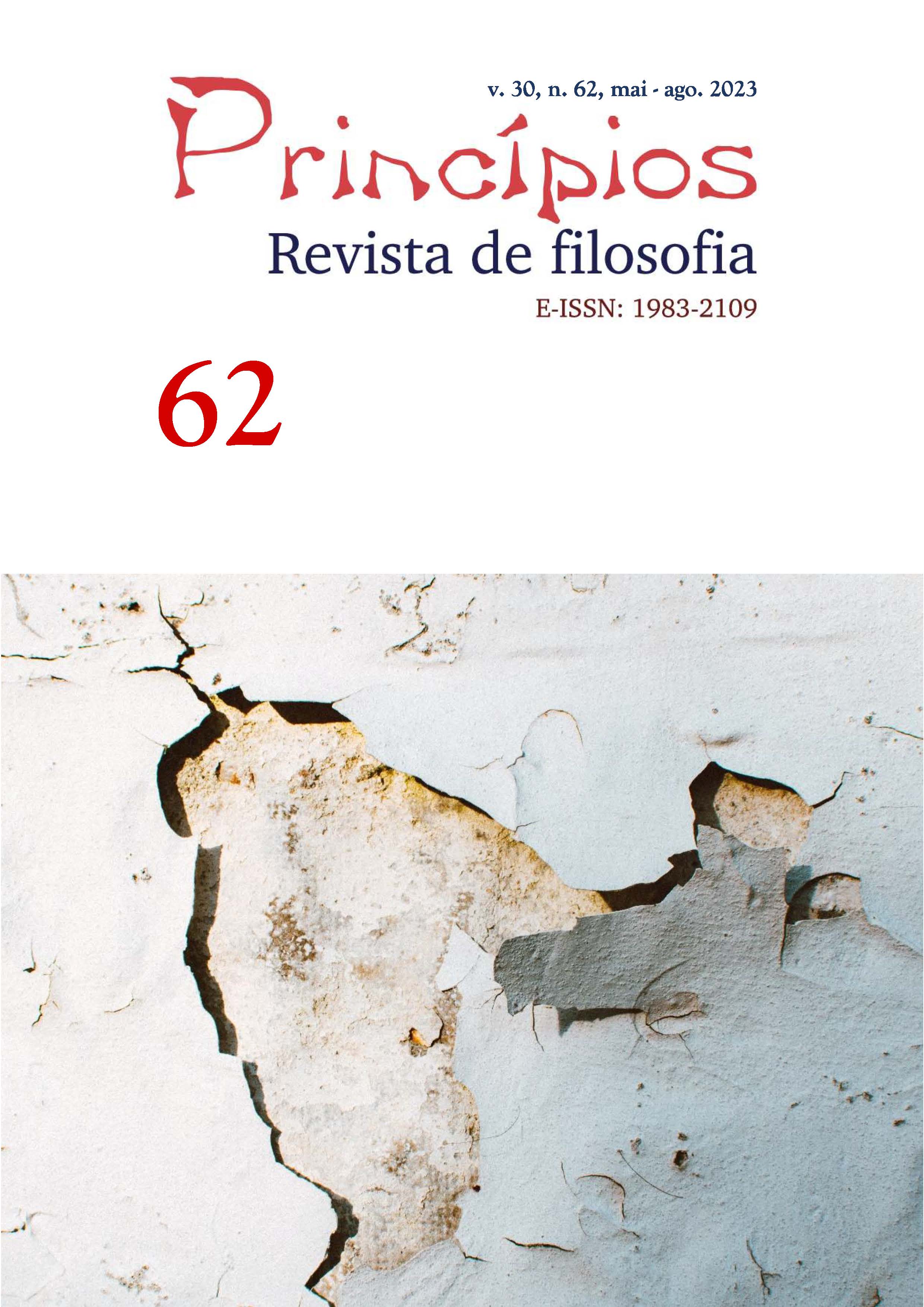A relação mente-corpo
entre o dualismo substancial e o monismo reducionista
DOI:
https://doi.org/10.21680/1983-2109.2023v30n62ID29573Keywords:
Mind-body problem, Substantial dualism, Reductionism, Thomas Nagel, Dual Aspect TheoryAbstract
The problem of the mind-body relationship is part of the agenda of philosophy. In modern times, René Descartes was one of those who addressed the issue, with many supporters and critics. The French philosopher advocated a substantial dualistic approach, according to which the mind is something substantially distinct from the body. A contrary view is taken by reductionist physicalist views, according to which, in general, reality is, or can be, reduced to the physical. Both views are controversial. The Cartesian dualist, by asserting that the mind belongs to a metaphysical plane, cannot explain how it would be possible for an immaterial entity to interact with a material one. The physicalist perspective, by asserting that reality must be explained by physical concepts, often cannot account for subjective mental processes, on account of the difficulty of reducing them to physical terms. Another perspective, called dual aspect theory, aims to be a middle ground between physicalism and dualism. In this article, we analyze some of the main thought currents of the philosophy of mind, trying to present, in a simple way, how plural are the perspectives that deal with the same object of investigation, which is the mind.
Downloads
References
CHURCHLAND, P. Eliminative materialism and the propositional attitudes. Journal of Philosophy, v. 78, p. 67-90, 1981.
CHURCHLAND, Paul M. Matéria e consciência: uma introdução contemporânea à filosofia da mente I: uma introdução contemporânea à filosofia da mente I. São Paulo: Unesp, 2004. 156 p.
DESCARTES, R. As paixões da Alma. São Paulo: Abril S.A. Cultural, 1983. (Col. Os Pensadores).
DESCARTES, R. Meditações. São Paulo: Abril S.A. Cultural. 1983. (Col. Os Pensadores).
KIM, J. Physicalism. In: WILSON, R. A.; KEIL, F. C. (Ed.), The MIT Encyclopedia of the Cognitive Sciences. Cambridge: The MIT Press, 1999. p. 645-647.
KIM, J. Supervenience and Mind. Cambridge: Cambridge University Press, 1993.
NAGEL, Thomas. Uma breve introdução à filosofia. Tradução Silvana Vieira, 2. ed. São Paulo: Wmfmartinsfontes, 2016.
NAGEL, Thomas. Physicalism. The Philosophical Review, v. 74, n. 3, p. 339-356, 1965
NAGEL, Thomas. The psychophysical nexus. Concealment and Exposure and Other Essays, New York, Oxford University Press, 2002.
NAGEL, Thomas. Visão a Partir de Lugar Nenhum. Tradução Silvana Vieira, São Paulo: Martins Fontes, 2004.
NAGEL, Thomas. What is it like to be a bat? The Philosophical Review, 1974.
PEREIRA, JR. A. Uma análise sobre materialismo eliminativo a partir do pensamento da Nagel. Trans/form/ação: Revista de filosofia, vol. 38, n. 03, 2015. https://doi.org/10.1590/S0101-31732015000300004.
PESSOA JR. O. O dualismo interacionista não precisa violar leis de conservação da física, São Paulo, FiloCzar, 2015.https://opessoa.fflch.usp.br/sites/opessoa.fflch.usp.br/files/Pessoa-Luma-scan.pdf.
PLACE, U. T. É a Consciência um Processo Cerebral? British Journal of Psychology, v.XLVII, 1956. Tradução Saulo de Freitas Araujo.
PLATÃO. Fedro, São Paulo: editora schwarcz s.a. 2016.
RYLE, G. The Concept of Mind. Chicago: University of Chicago Press, 1949.
TEIXEIRA,J .F. A orquestra da mente: Como a sinfonia da matéria e do cérebro gera a consciência. Editora Fi, 2018.
Downloads
Published
How to Cite
Issue
Section
License
Copyright (c) 2023 Marcos Antonio Alves, Heder da Silva Almeida

This work is licensed under a Creative Commons Attribution-NonCommercial-ShareAlike 4.0 International License.
Authors retain copyright and grant the journal right of first publication with the work simultaneously licensed under a Creative Commons Attribution License that allows others to share the work with an acknowledgement of the work's authorship and initial publication in this journal.


 Português (Brasil)
Português (Brasil) English
English Español (España)
Español (España) Français (Canada)
Français (Canada)


